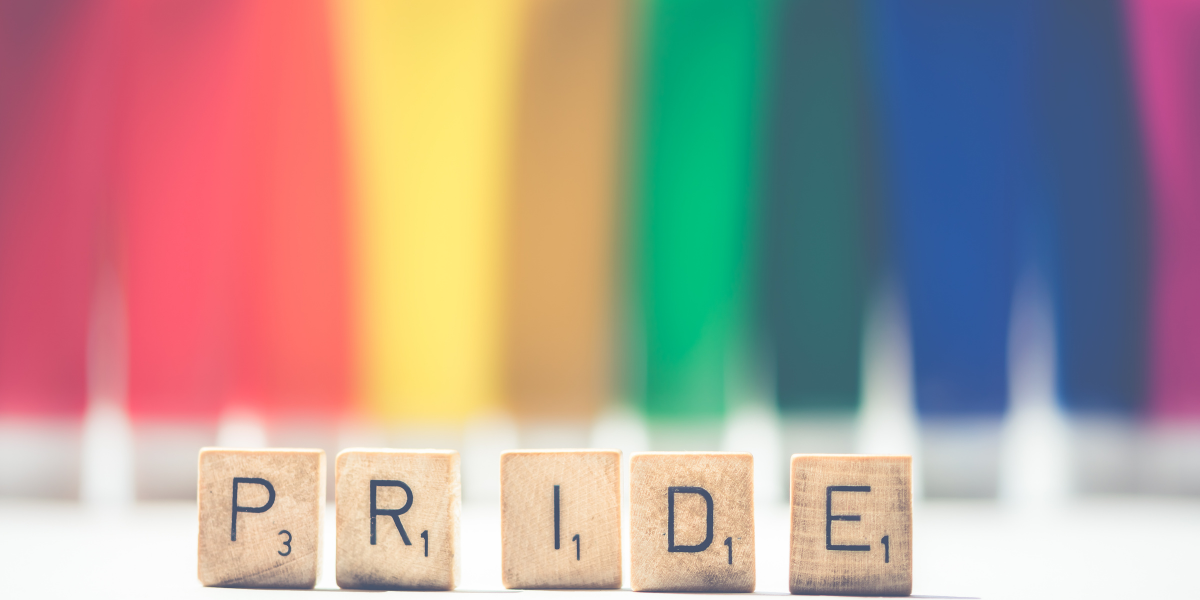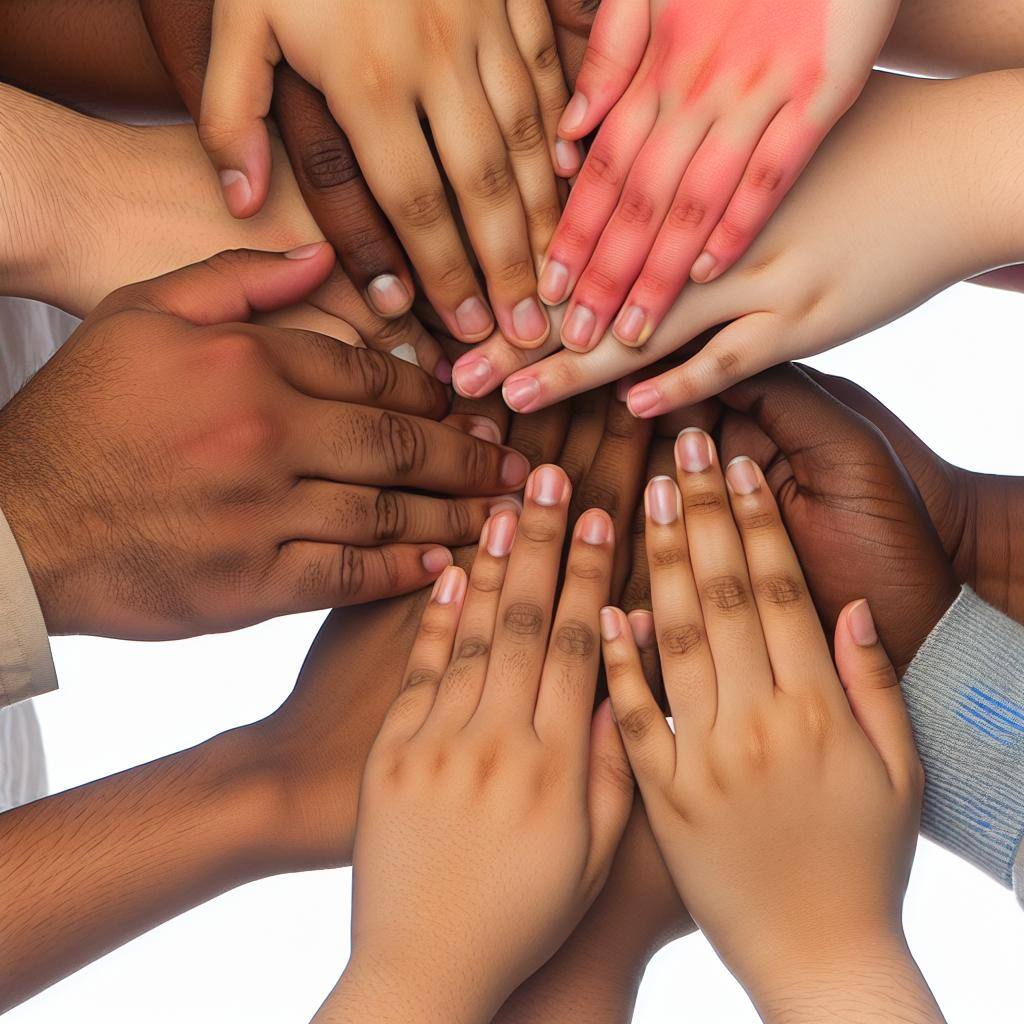1 min read
National Minority Mental Health Month with KDH Counseling
July is recognized as National Minority Mental Health Month, a crucial time to spotlight the unique challenges and resiliency within minority...
8 min read
Jessi LaSalle, MS, LPC : May 30, 2024 10:52:32 PM

Explore the various mental health resources and support available for the LGBTQIA community to empower their mental well-being.
Being a member of the LGBTQ+ Community or a mental health professional is not a prerequisite to making a positive impact on the mental well-being of queer individuals. It is essential to support LGBTQ+ individuals as it not only promotes equality and inclusivity but also plays a crucial role in dismantling the systemic discrimination, prejudice, and marginalization that have long affected the community. By advocating for the rights of LGBTQ+ individuals, we actively challenge societal norms and strive for a more compassionate and empathetic world for everyone. This support creates a safe space where individuals can feel validated and affirmed in their identities, leading to increased self-esteem and resilience against mental health challenges. Embracing and standing up for LGBTQ+ individuals is a significant step towards creating a society that celebrates diversity and fosters understanding and acceptance for all, improving the lives of those outside the LGBTQ+ community. In essence, supporting LGBTQ+ individuals is not just about addressing mental health issues; it is about building a more compassionate and equitable world for all.
Understanding and addressing the unique mental health needs of the LGBTQIA community is crucial for providing meaningful support. LGBTQIA individuals often face higher rates of mental health challenges, like depression, anxiety, and substance abuse, when compared to the general population. These issues can be linked to societal discrimination, stigma, and a lack of acceptance. As a society, we need to acknowledge these specific needs and adjust our approach to ensure that we are advocating for our fellow LGBTQ+ members.
Some key aspects of mental health needs and risk factors include recognizing the intersectionality of identity and minority stress. LGBTQIA individuals can belong to various racial, ethnic, and cultural backgrounds, and these intersecting identities may influence their mental health needs. They can also experience minority stress, which refers to the chronic stress experienced by individuals from marginalized communities due to their minority status. Queer individuals may face discrimination, prejudice, and violence, which can have a significant impact on their mental well-being. Individuals within and outside the LGBTQ+ community should be sensitive to these intersections and stressors experienced by these individuals to create a nurturing and inclusive environment to tackle these obstacles effectively.
Creating safe spaces for LGBTQ+ loved ones is essential for their well-being and happiness. Here are some ways you can make a safe and supportive environment:
Ashley Rush, MS, PLPC: "In therapy for OCD, I make sure my approach to the exposures when doing exposure and response prevention (ERP) does not reinforce stress already faced by minorities and LGBTQ+ populations. Instead, I make sure we are doing exposures from a social justice-based lens."
Whitney Storey, MS, LPC, PMH-C: "Since I work with so many neurodivergent (ND) clients and we know from the research that ND people are more likely to also be marginalized orientations and gender identities, I lead with the idea that gender and attraction are likely not as simple as they might appear when the client is sitting across from me. The curiosity that I lead with allows me to meet clients with an authenticity that clients have told me is relieving!"
Jessi LaSalle, MS, LPC: I take the "teach me what it's like to be you" approach to working with LGBTQ+ clients, individually or with relationships. In my therapy sessions, I prioritize creating a safe, nonjudgmental space where clients feel validated and understood for who they are, free from any preconceived notions. I understand that to be an affirming, supportive clinician I must consistently challenge my biases, stay curious, and stay informed on the latest research and cultures to ensure I am doing my due diligence as an LGBTQ+ mental health counselor."
Monet David, MS, LPC: "Recognizing the necessity of not only being affirming of LGBTQ+ clients but competent in serving this community, I've taken it upon myself to get additional training that has allowed me to serve clients in a greater capacity. It's my responsibility to show up informed of the lived experiences of my queer clients so that they do not have to explain what it means to be gay in South Louisiana but rather they can speak to the more nuanced experience of possessing a marginalized identity."
Understanding pronouns and gender identities is an important aspect of being an ally to the LGBTQ+ community. Here are some key points to keep in mind:
Developing coping skills and resilience is crucial for the overall wellness of LGBTQIA individuals and their allies. Given the distinctive stressors and obstacles that the LGBTQIA community often encounters, honing effective coping mechanisms can empower individuals to navigate these challenges successfully. Here are some essential considerations when focusing on coping skills and resilience among LGBTQIA members and their allies:
By building coping skills and resilience, LGBTQIA individuals and their allies can better navigate the challenges they may face and maintain their mental well-being.
There are various resources available to support the mental health needs of the LGBTQIA community in Acadiana. These valuable resources offer a wealth of information, counseling services, and community support for individuals seeking LGBTQIA mental health assistance. Here are some essential resources individuals can tap into for their mental well-being:
- LGBTQIA-affirming mental health organizations and clinics: These organizations specialize in providing mental health services that are sensitive to the unique needs of the LGBTQIA community. They often have counselors and therapists who are trained in LGBTQIA issues and can provide a safe and supportive environment.
At KDH Counseling, we place a strong emphasis on the cultural and social competence of our counselors to ensure they are equipped to effectively support a diverse range of individuals. Our team consists of highly skilled clinicians who specialize in serving the LGBTQ+ community across various areas of expertise. Whether you are seeking help for OCD, Trauma, Neurodivergence, Sex Ed,, or Relationship issues, rest assured that our counselors are well-prepared and trained to deliver inclusive and affirming care for LGBTQ+ individuals.
- Online support groups and forums: The internet offers a wealth of resources for LGBTQIA individuals seeking support. Online support groups and forums provide a platform for individuals to connect with others who may be facing similar challenges. These platforms can offer a sense of community, validation, and advice.
- LGBTQIA helplines and crisis hotlines: Helplines and crisis hotlines specifically designed for the LGBTQIA community can provide immediate support in times of crisis or distress. These services are often staffed by trained professionals who can offer a listening ear and connect individuals to further resources if needed.
- LGBTQIA-specific websites and publications: Numerous websites and publications focus on LGBTQIA mental health and provide articles, resources, and information on various topics. These platforms can be a valuable source of information and support for individuals seeking to enhance their mental well-being.
The Trevor Project: The Trevor Project’s 2024 U.S. National Survey on the Mental Health of LGBTQ+ Young People highlights the experiences of over 18,000 LGBTQ+ young people aged 13 to 24 across the United States.
GLAAD: GLAAD is a non-profit organization focused on LGBTQ advocacy and cultural change. GLAAD works to ensure fair, accurate, and inclusive representation and creates national and local programs that advance LGBTQ acceptance
APA Resource List: A collaborated list of LGBTQ resources by the American Psychology Association
By accessing these supportive resources, individuals in the LGBTQIA community can find the support and guidance they need to prioritize their mental health.
Ashley Rush, MS, PLPC: "Finding an LGBTQ+ affirming therapist can be hard work. Finding one who understands OCD on top of that can be even more so. Luckily, there are more resources available now than ever before. IOCDF advocate Alexandra Reynolds talks about her experience: Click Here."
Whitney Storey, MS, LPC, PMH-C: "For my LBGTQAI+ clients who also suspect neurodivergence, I love having them read parts or all of Unmasking Autism by Devon Price. Dr. Price does such a great job at discussing the research and lived experiences of people for whom the intersections of the different parts of their identity can impact them and be impacted by the world."
Monet David, MS, LPC: "For young adults exploring their sexual identity I love recommending Scarleteen.com for all things Queer Sex Education."
Promoting mental wellness and advocacy within the LGBTQIA community is crucial for creating a supportive and empowering environment. Here are some ways to promote mental wellness and advocacy within the LGBTQIA community:
Raise awareness about the mental health challenges faced by the LGBTQIA community through educational campaigns, workshops, and community events. Increasing visibility and understanding can help reduce stigma and promote acceptance.
Advocate for LGBTQIA-inclusive policies and practices in healthcare, education, and other systems. This can involve working with policymakers, organizations, and institutions to ensure that LGBTQIA individuals have equal access to mental health resources and support.
Support LGBTQIA-led organizations and initiatives that focus on mental health and well-being. By contributing to these organizations, individuals can help create a stronger support network and resources for the community.
Encourage open dialogue and discussion about mental health within the LGBTQIA community. Creating safe spaces for individuals to share their experiences and seek support can help reduce feelings of isolation and promote connection.
Foster a culture of acceptance and inclusivity within the LGBTQIA community. By celebrating diversity and promoting respect for all identities, individuals can create an environment that supports mental well-being.
By promoting mental wellness and advocacy within the LGBTQIA community, individuals can contribute to a more supportive and empowering environment for all members.
Blogs by Whitney Storey, MS, LPC, PMH-C

1 min read
July is recognized as National Minority Mental Health Month, a crucial time to spotlight the unique challenges and resiliency within minority...

Attention-Deficit/Hyperactivity Disorder (ADHD) is often mischaracterized—reduced to images of fidgety schoolchildren or distracted professionals...

What are the necessary mental health needs of BIPOC individuals and strategies for providing culturally competent support and practical resources?